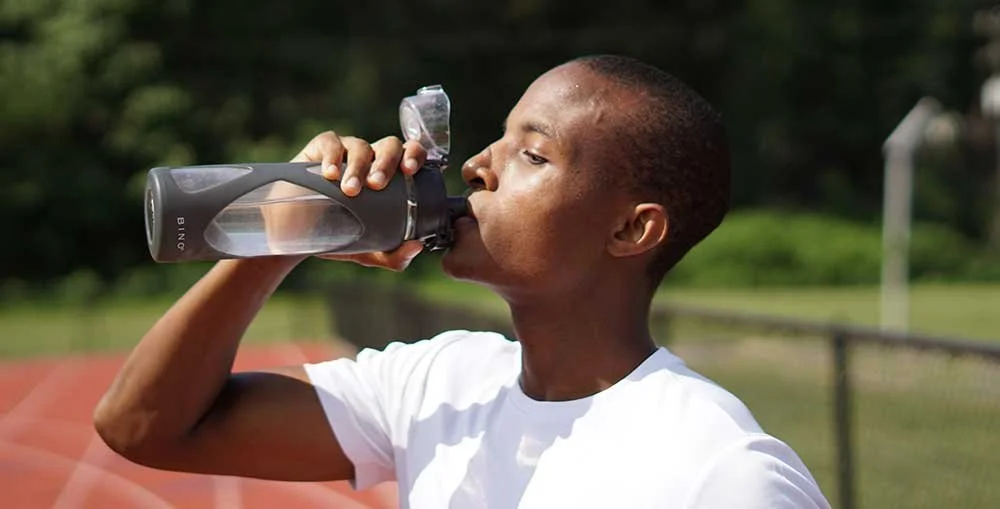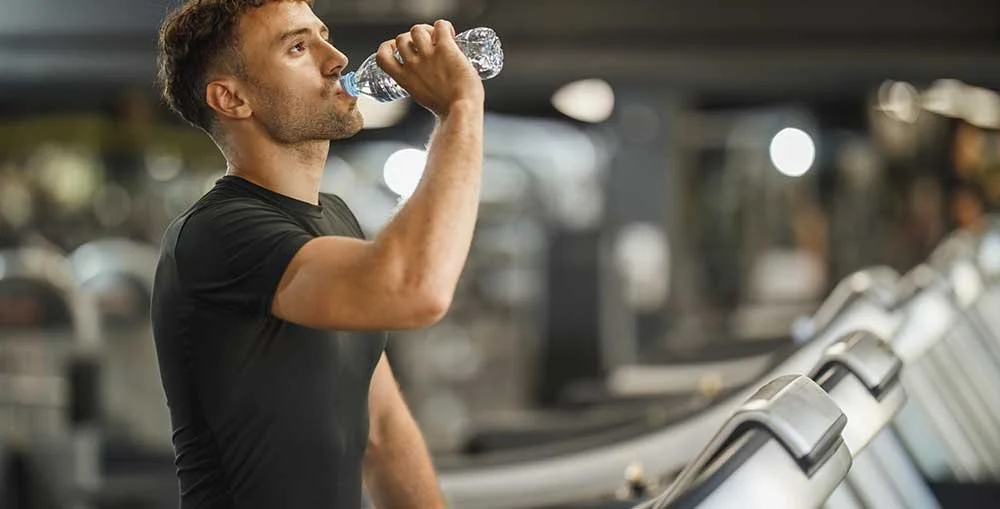Boost Your Athletic Performance: The Power of Hydration
Table of Contents Show
Quick Summary
Are you unknowingly sabotaging your workout performance? The secret to unlocking your athletic potential might be simpler than you think. This article talks about how hydration and its crucial role in athletic performance. Discover why staying properly hydrated is about more than just quenching thirst.
Learn practical tips for estimating your fluid needs, effective hydration strategies for before, during, and after exercise, and how to choose the right beverages for optimal performance. We'll debunk common hydration myths and provide science-backed insights to help you elevate your fitness game. Whether you're a seasoned athlete or a fitness newcomer, mastering the art of hydration could be your key to reaching new heights in your athletic journey.
Are you ready to unlock the secret to peak athletic performance?
It might be simpler than you think.
Whether you're a seasoned athlete, a weekend warrior, or just starting your fitness journey, one crucial element can make or break your workout: hydration.
Welcome, fitness enthusiasts and health-conscious readers! Today, we're diving deep into the world of hydration and its profound impact on your physical activities.
From the bustling streets of downtown Vancouver to the scenic trails of the North Shore, staying properly hydrated is your key to pushing harder, recovering faster, and feeling your absolute best.
Hydration isn't just about drinking water when you feel thirsty. It's a science, an art, and a critical component of your overall wellness strategy.
In this article, we'll explore why staying hydrated is absolutely essential for athletic performance and how you can master the art of hydration to elevate your workouts and your everyday life.
So, get ready whether you're gearing up for your next marathon, preparing for a gruelling CrossFit session, or simply aiming to make the most of your daily yoga practice.
We'll share practical tips and insights to help you harness the power of proper hydration. Ready to learn how water can transform your fitness routine? Let's get started.
Understanding the vitality of hydration
Hydration is about so much more than just quenching your thirst. It plays a critical role in your overall well-being and athletic performance.
When you stay hydrated, you help regulate your body temperature, keep your joints lubricated, deliver nutrients, and efficiently eliminate waste products. It's like giving your body a big, refreshing drink of life!
Let me tell you a little story from my own experience. Last summer, I decided to take up running. I was so eager to hit the pavement that I often forgot to bring water on my runs.
As a result, I found myself dealing with muscle cramps, feeling tired all the time, and lacking the energy to go the extra mile. It was only when I started paying attention to my hydration and drinking enough water that I noticed a significant improvement in my performance and how I felt overall.
Staying hydrated is key to all factors of your day to day activities
Understanding the Importance of Hydration
Proper hydration is crucial for overall health and athletic performance. It's not just about quenching thirst; hydration plays a vital role in:
Regulating body temperature
Lubricating joints
Delivering nutrients throughout the body
Efficiently eliminating waste products
Research shows: A study published in the Journal of Athletic Training found that even mild dehydration (a 1-2% loss in body weight) can significantly impair physical performance and cognitive function. Read the study here.
Recognizing the risks of dehydration
Now, let's discuss recognizing the risks of dehydration. When you don't maintain proper hydration levels during intense physical activity, you risk your body and performance.
Failing to maintain adequate hydration levels during physical activity can lead to:
Muscle cramps
Dizziness
Fatigue
Decreased performance
Heat-related illnesses (in severe cases)
You don't just have to take my word for it. Plenty of scientific research shows the direct link between hydration and sports performance. Did you know? The American College of Sports Medicine states that dehydration can reduce exercise performance when 2% or more of body weight is lost through sweat. View the ACSM Position Stand.
Estimating your fluid needs
So, how can you know how much fluid you need to stay properly hydrated? It's easier than you might think. You can use a couple of simple methods to estimate your fluid needs.
First, start with the most glamorous topic, which is your urine colour, an essential indicator of your hydration status.
Generally, if your urine is light in colour, like a pale yellow, it means you're well-hydrated. But if it's dark, like a deep yellow or amber, it could indicate you're dehydrated. So, the next time you visit the bathroom, quickly peek and adjust your fluid intake.
Another way to estimate your fluid needs is to monitor your body weight before and after exercise.
If you notice any weight loss, it's likely due to fluid loss during your workout. Drink water or other hydrating beverages to replenish those lost fluids. It's a simple way to ensure your body stays happy and hydrated.
Hydration Guidelines for Optimal Performance
Now that we know why hydration is important and how to estimate our fluid needs, let's discuss practical guidelines for optimal performance.
These recommendations will give you a great starting point, but feel free to adjust them based on your needs and preferences.
-
About 1-2 hours before your workout, drink around 4-16 ounces (118-473 ml) of water.
Just before you start, drink an additional 8-12 ounces (237-355 ml) of water to ensure you're properly hydrated.
-
To maintain proper hydration levels during exercise, aim to drink about 5-10 ounces (148-296 ml) of water every 10-15 minutes.
If your workout lasts longer than 60 minutes, consider sipping on a sports drink containing no more than 8% carbohydrate every 15-30 minutes. This will provide you with essential electrolytes and fuel to keep you going strong.
-
After your workout, hop on the scale and check your weight. For every pound (0.45 kg) lost, drink 20-24 ounces (591-710 ml) of water within 2 hours. This will help replenish your fluids and promote efficient recovery.
Choosing The Right Hydrating Beverage
Regarding hydrating beverages, there are a few options to consider. Let's take a look at some of the best choices for optimal hydration:
| Beverage | Best Use | Notes |
|---|---|---|
| Water | General hydration | Calorie-free, easily accessible |
| Sports Drinks | Prolonged, intense exercise | Provides electrolytes and carbs |
| Chocolate Milk | Post-exercise recovery | Balanced mix of carbs, protein, and electrolytes |
Water: Ah, good old H2O. It's the simplest and most effective choice for rehydration. Water is calorie-free, easily accessible, and does a fantastic job restoring fluid balance in your body. So don't forget to grab that water bottle and keep yourself refreshed.
Sports Drinks: Sometimes, when you're engaged in prolonged and intense physical activity, you may need a little extra boost. That's where sports drinks come in handy. They contain electrolytes and carbohydrates that help replenish what you lose during your workout. Remember to choose sports drinks with lower sugar content to avoid unnecessary calories.
Chocolate Milk: Yes, you read that right. Chocolate milk isn't just a delicious treat and a great post-exercise beverage. It provides a balanced mix of carbohydrates, proteins, and essential electrolytes, making it an excellent choice for recovery. Plus, who can resist the sweet taste of chocolate after a good workout?
Avoid: Caffeinated and alcoholic beverages, as they can contribute to dehydration.
take well deserve breaks when exercising to avoid dehydration or injury
Common Hydration Myths Debunked
Let's clear up some misconceptions:
Myth 1: Thirst is a reliable indicator of hydration needs.
Fact: Thirst often lags behind your body's need for fluids.
Myth 2: You can't overhydrate.
Fact: Excessive fluid intake can lead to hyponatremia, a potentially dangerous condition.
Myth 3: Coffee always dehydrates you.
Fact: Moderate coffee consumption can contribute to daily fluid intake.
Myth 4: Sports drinks are always better than water.
FACT: For most moderate exercise lasting under an hour, water is sufficient. Sports drinks are beneficial for intense, prolonged exercise.
Myth 5: Clear urine means you're well-hydrated.
FACT: While pale yellow urine indicates good hydration, completely clear urine might mean you're overhydrated.
Myth 6: You need to drink 8 glasses of water a day.
FACT: Hydration needs vary based on individual factors like activity level, climate, and diet. Focus on drinking when thirsty and maintaining pale yellow urine.
In this article, we learn proper fluid intake, cooling techniques, and how to recognize heat illness symptoms.
Conclusion
As we wrap up our deep dive into hydration and athletic performance, we hope you've found this information valuable and applicable to your fitness journey.
Whether you're a seasoned athlete or just starting out, understanding the importance of proper hydration is crucial for achieving your health and fitness goals.
Let's recap the key takeaways from this article:
Hydration is essential for regulating body temperature, lubricating joints, and delivering nutrients.
Even mild dehydration can significantly impair physical performance and cognitive function.
Monitor your hydration status through urine colour and weight changes during exercise.
Follow specific hydration guidelines before, during, and after exercise for optimal performance.
Choose the right beverages based on the duration and intensity of your activity.
Adjust your hydration strategy based on environmental factors like heat, cold, and altitude.
Be aware of common hydration myths and focus on evidence-based practices.
While proper hydration is crucial, it's important to remember that it's just one piece of the puzzle regarding athletic performance and overall health.
Factors such as nutrition, sleep, training intensity, and recovery also play significant roles in your fitness success.
We encourage you to use this information as a starting point and consult with healthcare professionals or certified trainers for personalized advice tailored to your needs and goals.
Stay hydrated, stay informed, and keep pushing towards your peak performance!
If you have any further doubts or questions regarding this subject or another treatment, contact one of our experienced Acupuncturists or Registered Massage Therapists here at West End Wellness Clinic. You can either give us a call or make an appointment.
Disclaimer: Please remember this article is for informational purposes only and should not replace professional medical advice. Please consult a healthcare provider or someone with the correct qualifications before starting any new exercise or treatment program.





